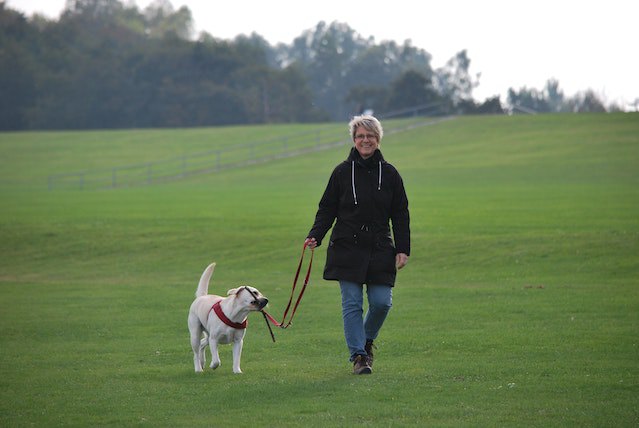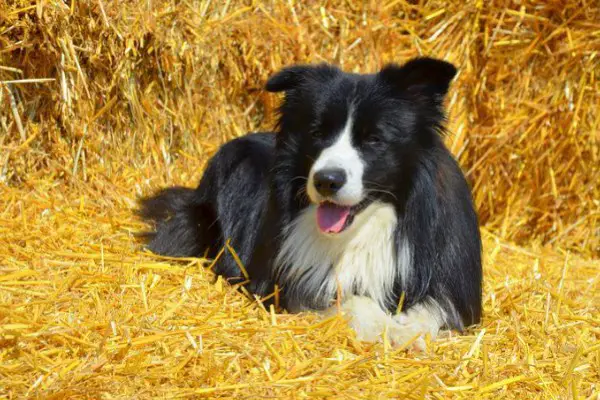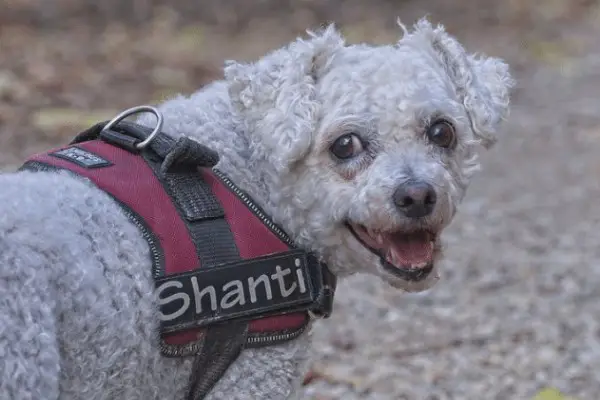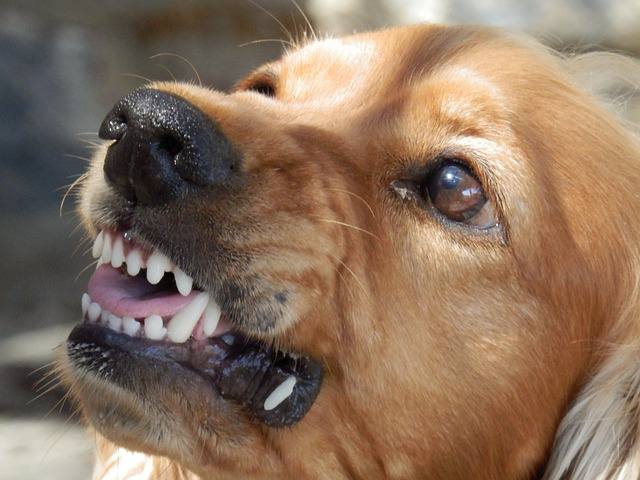Do Yorkies Bite: 6 Reasons Yorkies Bite & Fix

Every dog bites especially during the teething stages therefore, I will address the question do Yorkies bite in this post, I will keep things simple so keep reading.
After reading this post you will understand the most common reasons why Yorkies may bite and ways to prevent, control or fix their biting behavior.
Let me quickly answer your question do Yorkies bite before we continue to other things.
Do Yorkies bite
Yorkies do bite during the teething phase, but they are not known for biting at the adult stages, however, they can bite to protect themselves, as a result of poor socialization, or to nip out of excitement.
The most common type of bite found in Yorkies is over-excitement bites, which can be unpleasant but are not intentional.
Since Yorkies are not known for biting, let’s look at some common reasons why they may bite.
When startled Yorkies can mistakenly bite their owners so never startle them when they are sleeping or resting.
Keep reading…
Why do Yorkies bite so much?
Yorkies can bite for a variety of reasons which include the following:
1. Teething process
When Yorkie puppies are young, they are more prone to this type of biting, which is less painful than when adult Yorkies bite.
While Yorkies are pups, the best time to teach them not to bite excessively is when they are young.
A teething Yorkie bite may not be as painful as a bite from an adult Maltese.
Even if you follow the traditional don’t bite advice, this type of biting may continue until the teething stage is through.
Tips
You can provide lots of mental stimulation activities and chewing toys for your Yorkie at the teething stages.
Don’t give your Yorkie puppies your hands to bite as you will find it hard to control their bite later.
Stay off the floor when your Yorkie puppies start biting, always try to redirect them to chew toys.
During the teething process, Yorkies love chewing things to keep their teeth sensitivity low, therefore try to provide chewing toys and not your hands.
Many Yorkie behavior problems are caused by a lack of socialization, which can lead to unnecessary biting or barking.
Biting is not acceptable in a well-socialized Yorkie since it is something they learn through socialization and training.
Yorkie bites are mainly the result of a lack of socialization and are linked to fear and self-defense.
Tips
To avoid all forms of Yorkie bites caused by incorrect socialization, you must learn to expose and socialize your Yorkie from the puppy stage onwards.
Ways to socialize your Yorkie puppies include:
- Take your Yorkie to dog parks.
- Take your Yorkie for an evening walk.
- Inviting other dog owners.
- Visiting other well-trained dogs.
- Register your Yorkie for puppy classes.
- Take your Yorkie for shopping.
- Introduce your Yorkie to loud sounds, etc.
3. Yorkies bite when startled
Yorkies, like other tiny dogs, bite when startled, especially if they’ve been resting, sleeping, or relaxing.
A scared Yorkie may get disoriented and confused about its surroundings, biting as a result of this.
This is especially common in older Yorkies, who may have visual or hearing problems and get bewildered when woken.
Tips
Always be careful not to wake sleeping Yorkies, and teach your children not to enter their Yorkie’s chambers.
If you must wake your Yorkie while they are sleeping, make sure you don’t startle them. Let them understand it’s ok when you wake them up.
Never wake your Yorkie up by touching their neck or tummy, as they may mistakenly bite.
4. Yorkies bite to defend themselves
Yorkies are little dogs who are terrified of anything that looks to be bigger than they are.
When they come face to face with something larger than themselves, they may get aggressive, which might result in unwanted biting.
Yorkies, like other dogs, are not aggressive and are not known for biting unnecessarily, however, they may bite in self-defense or to protect themselves.
Although some dogs bite more frequently than others, every dog bites to defend itself or its owners.
Tips
Never let your Yorkie be in a position when he feels he will have to defend himself.
Train your Yorkie to be comfortable having other pets or humans around.
5. Anxiety
Biting, barking, whining, and nipping are all undesirable Yorkie behaviors that may be changed.
When a Yorkie is separated from its owner, it might grow agitated and bite.
The wrath is generally more intense and lasts longer, with the majority of the time spent biting.
Tips
Consult your veterinarian or get a second pet to keep your Yorkie company to help with separation anxiety.
Although stress may lead a Yorkie to grow agitated and attack anybody in their area, any sources of tension must be removed.
6. Fear
One of the most prevalent reasons for Yorkie bites is fear; if your Yorkie feels threatened, he will bite.
In Yorkies, fear leads to ineffective behaviors like as whining, barking, and biting aggression.
The majority of the time, Yorkie bites in response to aggression, fear, or threat, or when danger is present.
Tips
Keep your Yorkie away from anything that scares him, or, better yet, makes him socialize his fear.
How to prevent Yorkies from biting
The following are some typical methods for preventing or teaching Yorkies not to bite:
1. Identify the cause of biting
When your Yorkie bites, try to find out the root cause of the biting.
Figuring out what led to your Yorkie biting is an easy way to figure out what exactly you are fixing.
2. Don’t encourage pounce play
If your Yorkie is jumping on your legs or feet as you walk, correct them. This is a typical and enjoyable puppy behavior.
To encourage the puppy to learn to walk respectfully with you, hold a high-value incentive near your leg as you walk.
A similar procedure is used to train a puppy to walk on a leash.
3. Provide chew toys
It’s a good idea to keep a puppy chew toy on hand at all times so you can anticipate biting and use the toy instead than your hand or furniture.
This will educate puppies on what bites and chews are appropriate.
If they start chewing on your fingers or toes while you’re playing, give them a toy instead.
If they continue to nip, call a halt to the game.
If you’ve been teaching your puppy to sit, you may refocus them by asking them to sit and rewarding them with a toy.
4. Train your Yorkie to ignore distractions
Under some conditions, Yorkies can become aggressive. You should educate your Yorkie to ignore other dogs and distractions to avoid this.
Positive reinforcement has proven to be the most effective strategy. You give your Yorkie a ‘reward’ and put him in ‘time out’ if he becomes defensive.
The dog will be required to remain still and secure only while you are giving him his treat.
You may train your Yorkie to keep going if you use presents to distract and amuse him.
5. Socialize your Yorkie early
Yorkies feel annoyed when they come into contact with objects that are larger than they are.
This is one of the most crucial things you can do if you want a quiet and peaceful Yorkie who will not assault other animals.
Your Yorkie has to be socialized early in infancy to avoid developing a number of negative traits later in life.
Puppy classes, dog cartoon films and television shows, dog parks, and daily walks are all popular ways for your Yorkie to socialize.
6. Put your Yorkie on a time out
Instead of merely giving your Yorkie time-outs when he bites you too hard, start giving him time-outs whenever his teeth brush against your skin.
As soon as your Yorkie’s fangs brush against you, let out a high-pitched response.
After that, take a step back from him. Ignore him for 30 to 60 seconds.
Gently place your Yorkie in their kennel to allow them to calm down and avoid biting.
Be calm so that your Yorkie doesn’t associate the time-out with punishment. After the Yorkie has calmed down, you may let it out.
7. Teach the “Stop” and “Leave It“ Commands
Your puppy should learn to quit what they’re doing or leave things alone as they become older.
Every dog should be taught these instructions. They are particularly beneficial in a variety of scenarios.
When your puppy bites or nips, firmly say “Stop” or “Leave It” in an authoritative tone, letting your dog know that this is not a playing moment.
You may also wish to put your hands under your armpits to assist indicate to your dog what is anticipated, similar to the “biting means game over” technique.
You may instantly reward your dog with a treat if it stops biting or nipping at whatever it is biting or nipping at.
8. Desensitize your Yorkie
Because one of the things that make Yorkies nervous is loud noises and sounds, you should potentially expose or desensitize your Yorkie to them.
These are mostly meant to educate your Yorkie that loud noises aren’t a threat and that when presented with them, he or she should stay calm.
If your Yorkie becomes anxious when the doorbell rings, attempt to socialize or desensitize him to it.
If your Yorkie can’t tolerate seeing the mailman, for example, contact him and introduce your Yorkie to him.
Introduce your Yorkie to everything that makes him uneasy so that he may become used to it.





![Understanding Maternal Aggression in Dogs [Useful Hints] Maternal Aggression in Dogs](https://petcreeks.com/wp-content/uploads/2023/10/pexels-briseed-14846036.jpg)
